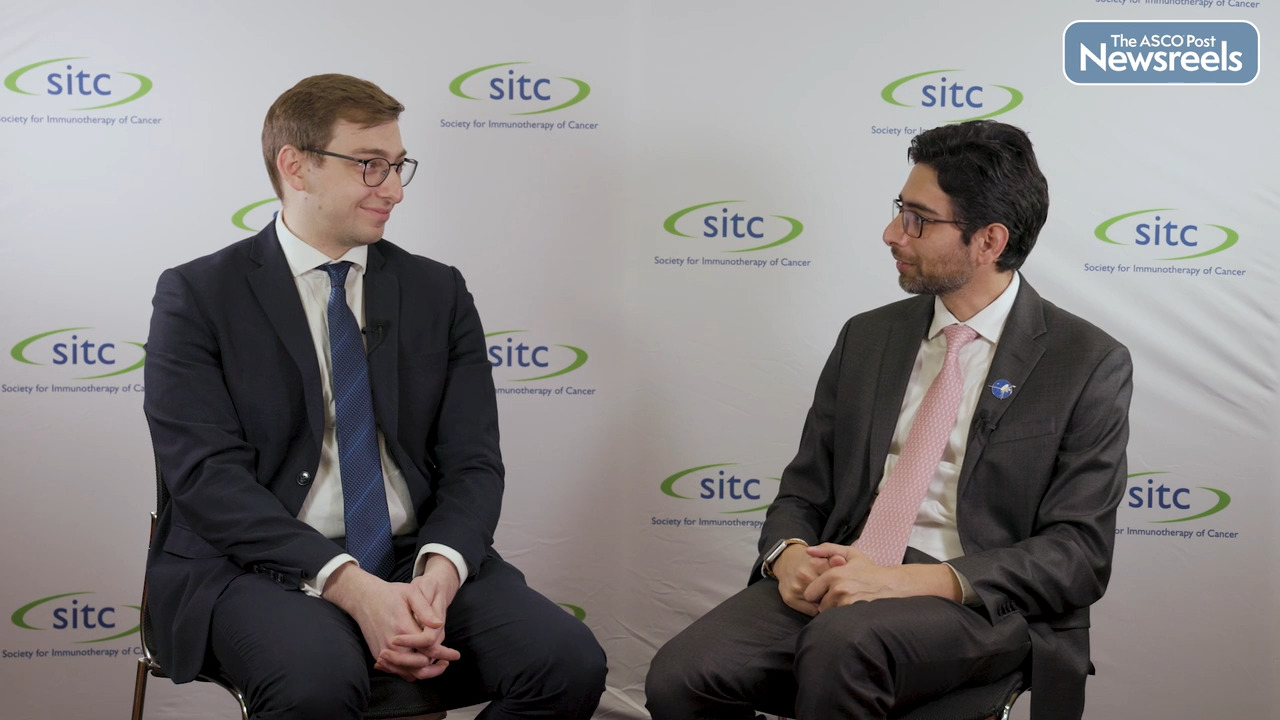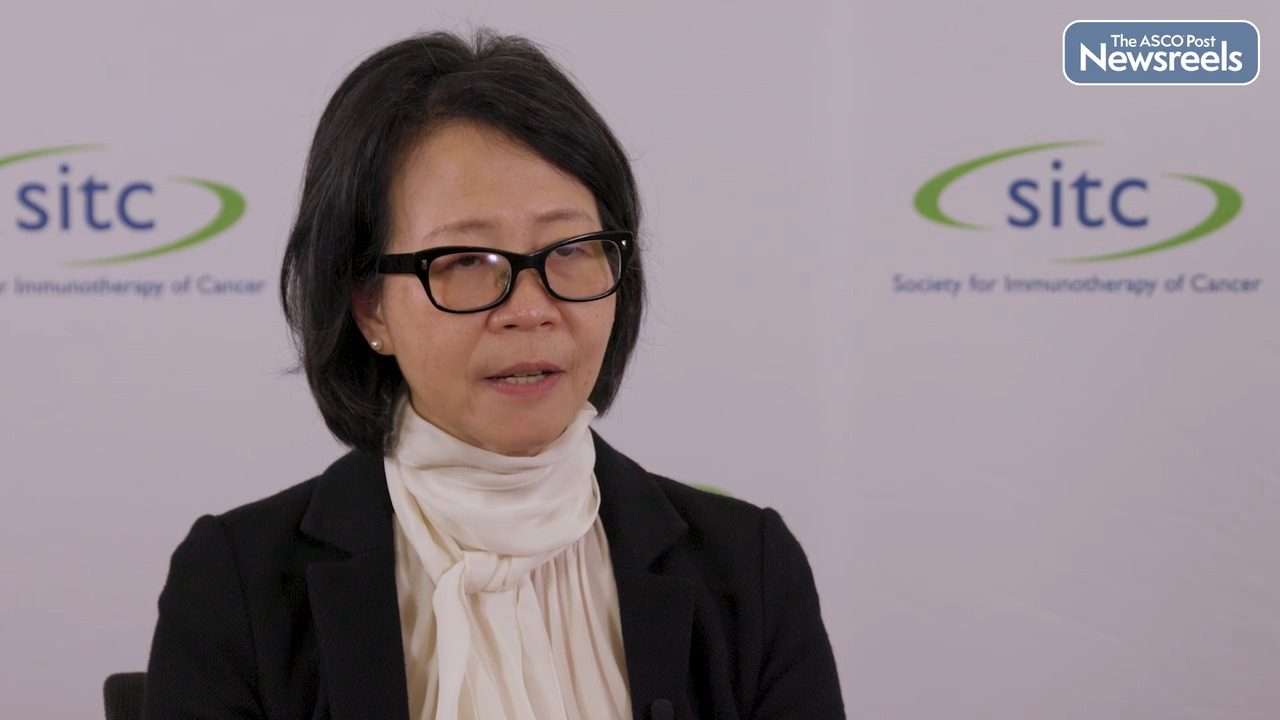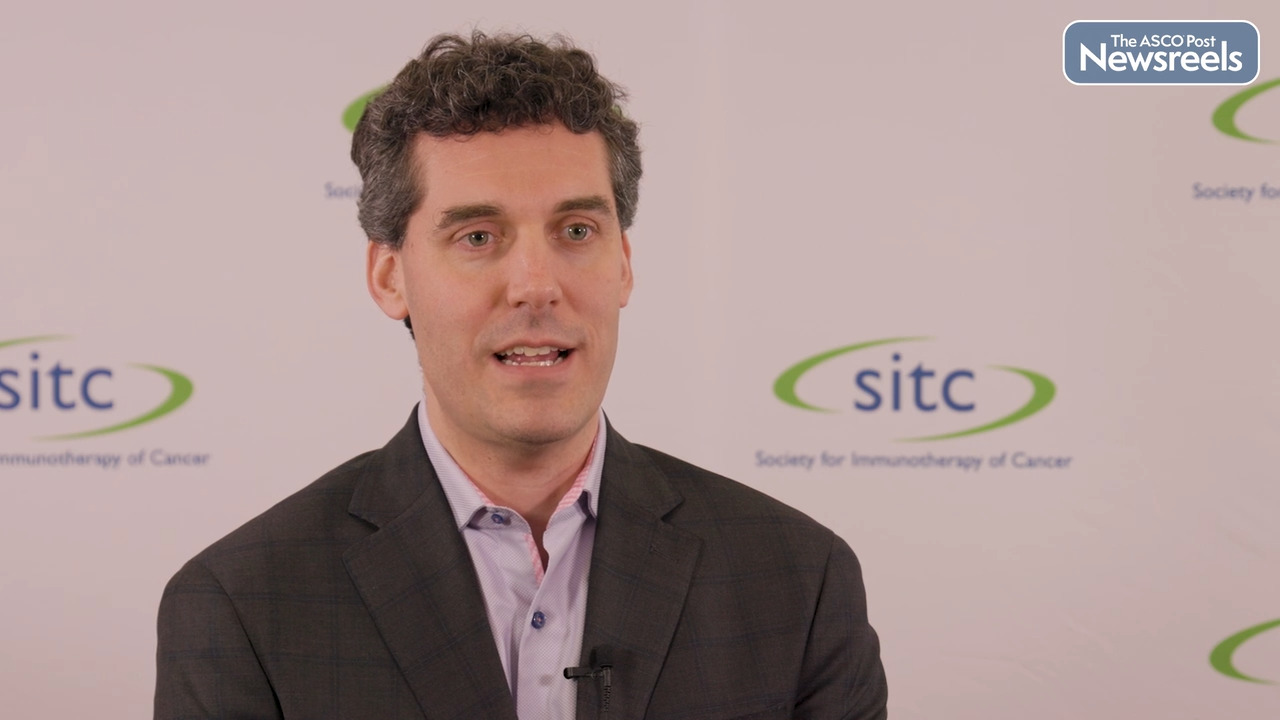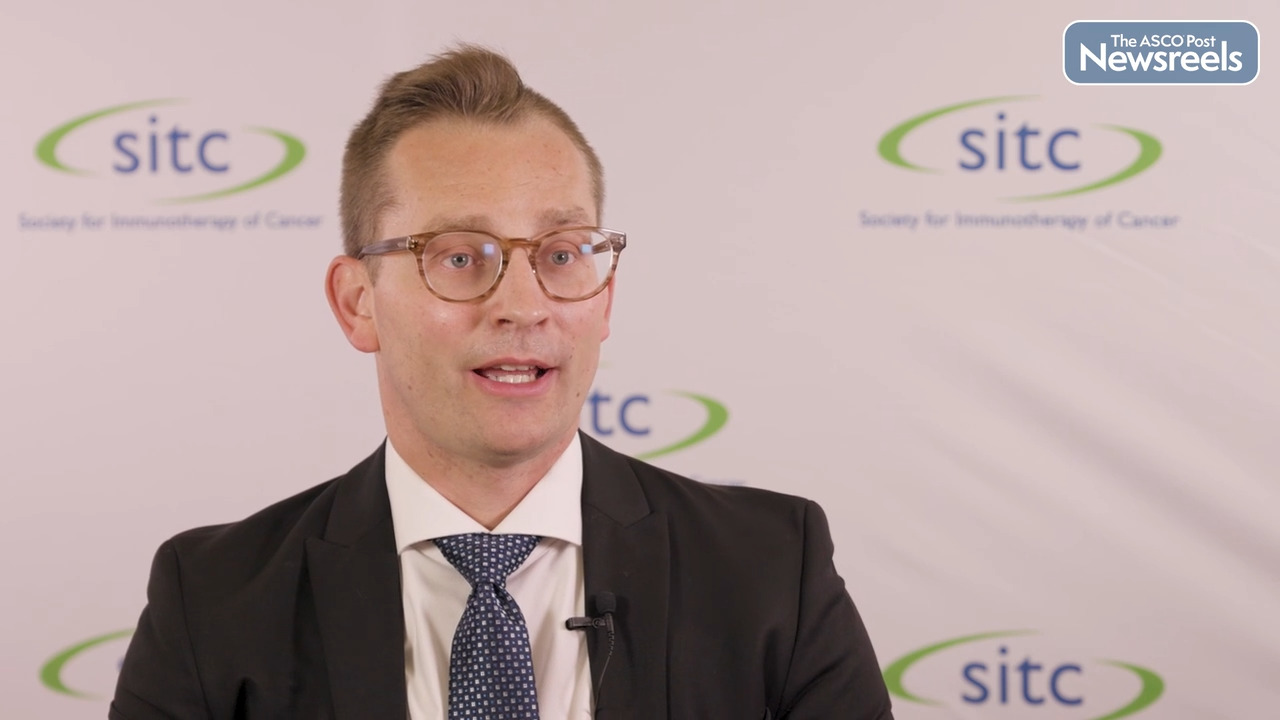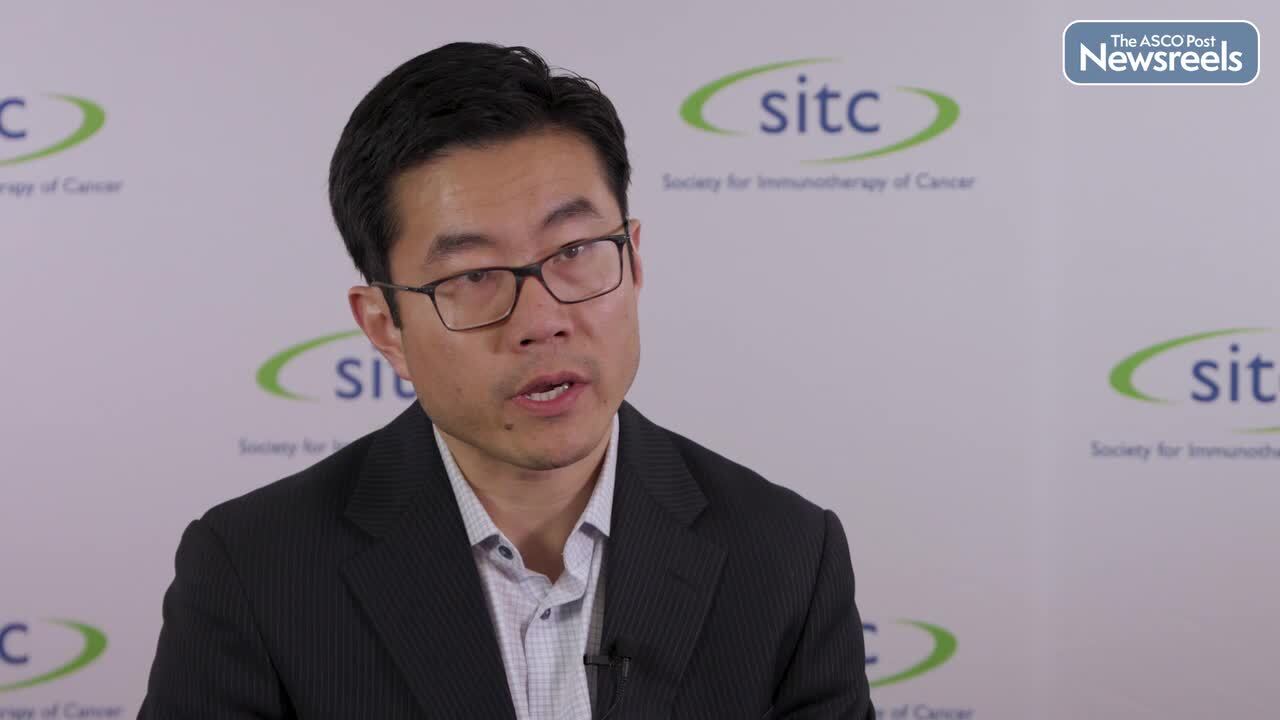Transcript
Disclaimer: This video transcript has not been proofread or edited and may contain errors.
So in recent years we have seen studies that show that there is a link between microbiome composition in patients who are receiving immunotherapy, and in last couple of years we have had a couple of interventional studies that they've shown that with prospective changing of patient's microbiome via fecal microbiota transplantation, you can sensitize immunotherapy refractory melanomas to anti-PD-1 therapy.
In our trial, what we tried to do was we treated 20 advanced melanoma patients who were anti-PD-1 naive and we used stool material from healthy donors instead of patient donors that were used previously. And what we did was we had the patients undergo bowel prep the night before fecal transplant, we did not use any antibiotics because there is ample evidence now that antibiotics could be harmful in this setting, and then we allowed the allowed seven days for engraftment post-FMT before we started immunotherapy, and then we collected samples along the way from the patients.
So what we see first is the primary endpoint of the study was safety and we saw there was no any safety signal from fecal transplant. There was some grade one, grade two adverse events like diarrhea or some abdominal discomfort, and we did not see any added toxicity beyond what you expect from single agent anti-PD-1 therapy in these patients. We had five patients who experienced grade three toxicities including pneumonitis, arthritis and fatigue.
So in terms of efficacy of the study, we had 65% response rate in the patients that included three patients with complete response and 10 patients with partial response, and we had three patients with stable disease, two of those had stable disease over six months, which gave us a clinical benefit rate of 75%, which is beyond what you expect from single agent anti-PD one therapy.
In the translational analysis of the patient samples, we saw that the donor microbiome had much higher diversity than the patients, as kind of expected, and post-FMT, all patients went on to have a high diversity in their microbiome, which was durable over time. However, there was no link to response or clinical benefit from this added diversity into their microbiome.
What was interesting was that only patients who experienced clinical response were the ones that they had a successful engraftment and retention of the donor microbiome over time, which speaks to the importance of being able to retain the donor microbiome post transplant. We've done some metabolomics analysis of patient samples and we saw that in the plasma patients who were responders had high levels of histidine, which is interesting because histidine has been shown to be increased in lung cancer patients who have responses to anti-PD-1 therapy, and we saw that here as well in melanoma patients.
Now we've done some [inaudible 00:03:32] mouse experiments and we show that patients before FMT their stool did not induce any response to immunotherapy when we colonized the animals and then injected the animals with tumors and then treated them with anti-PD-1 agents. However, the donor microbiome, or donor stool, was able to induce response and then when we did similar trial design and we first colonized the animals with this patient stool and then injected them with the tumors and then colonized them again with the donor microbiome and treated them with the drug, now that drove response, which really confirms that the donor microbiome is driving response in this setting.
In conclusion, FMT, use of FMT, in first line in melanoma is safe and we see that the retention and the successful engraftment of donor microbiome is key in driving response. Now we are conducting additional studies in renal cell cancer and a phase two trial in melanoma and lung cancer and we are soon to start a study in pancreatic cancer to see if changing the microbiome in patients can drive response. And I think in the future it will be very important to conduct randomized phase three trials to show if, prospectively changing, if microbiome can improve the clinical response and change the standard care in melanoma and other disease sites.
